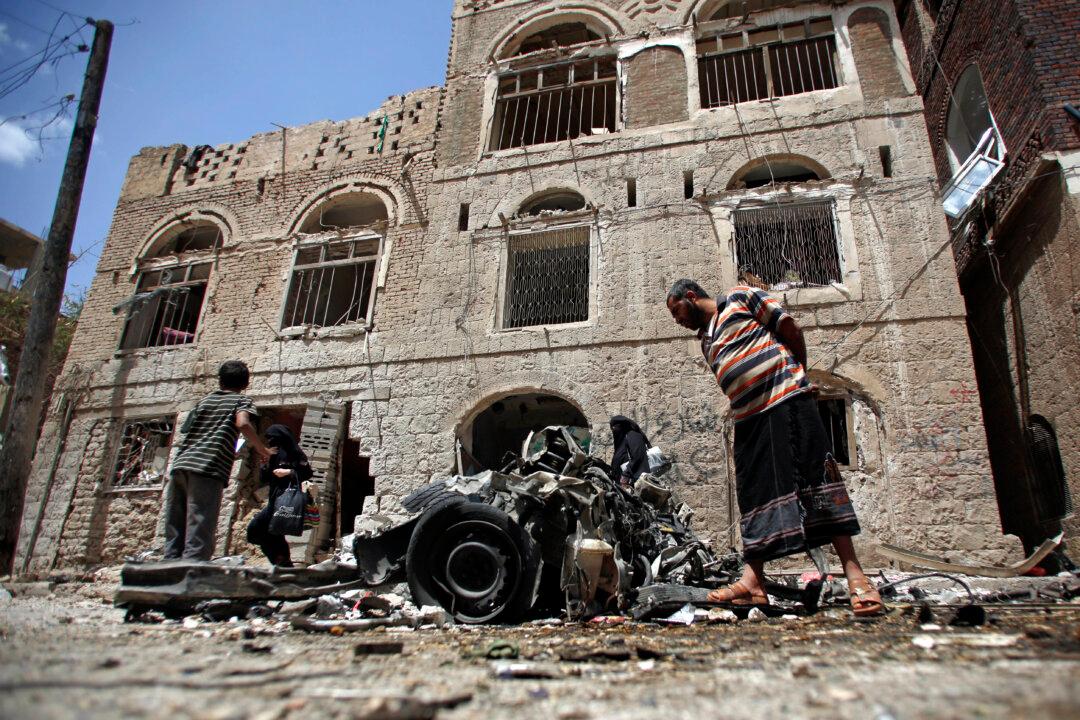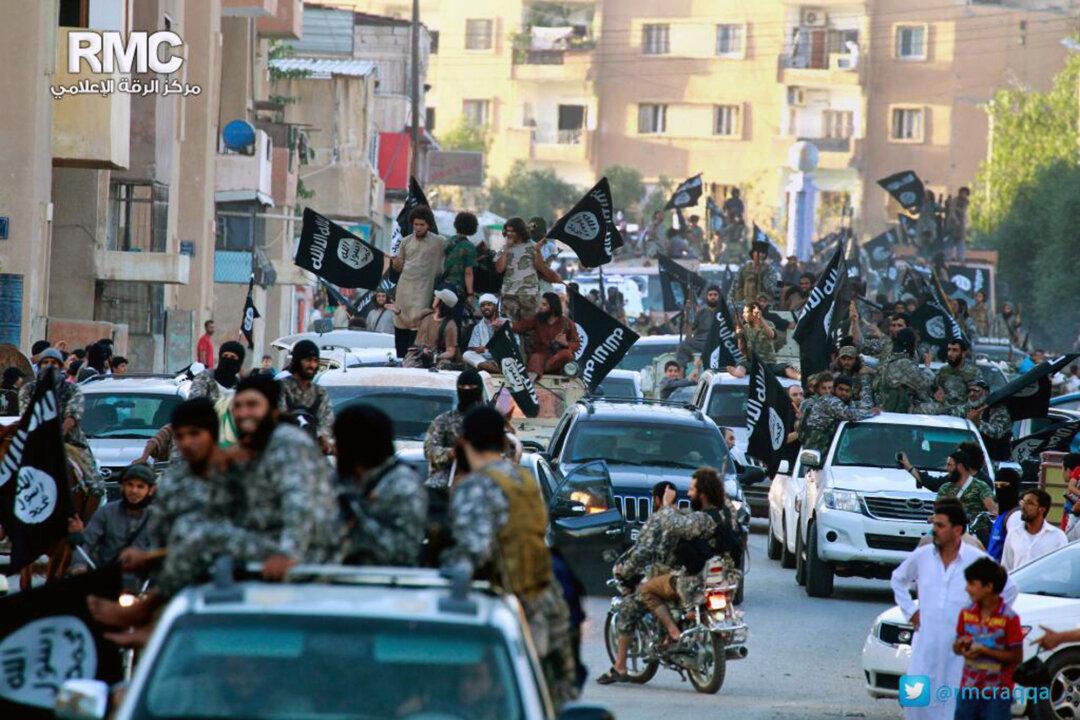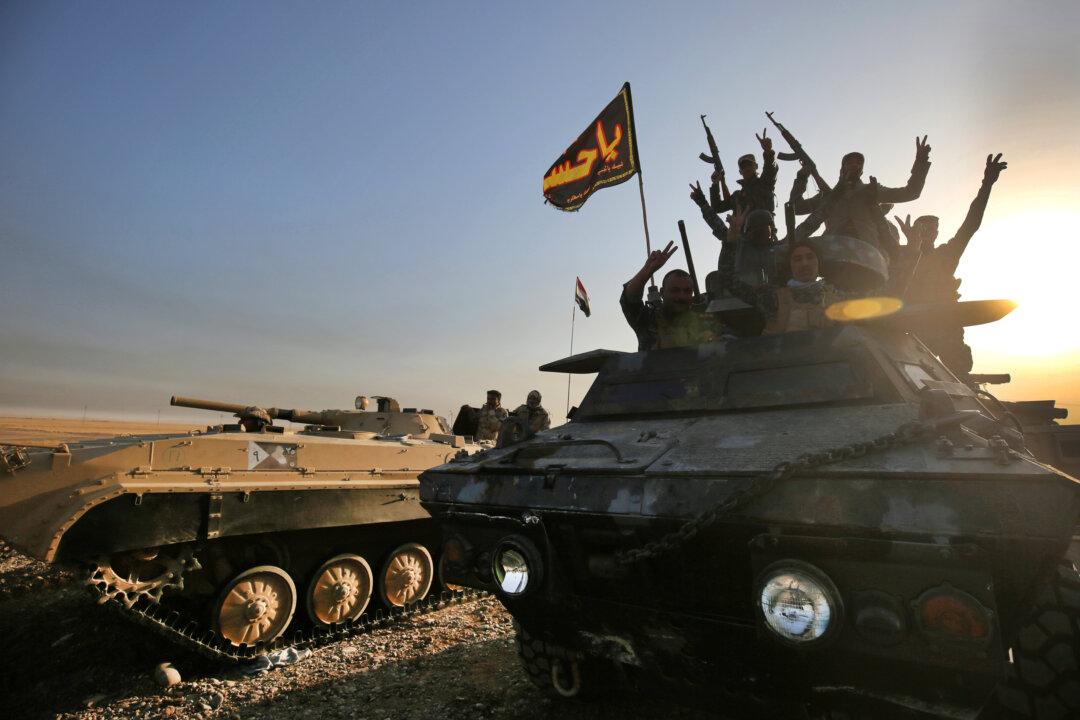Members of Congress are looking to block arms sales to Saudi Arabia as the kingdom wages an air campaign in Yemen that has killed thousands of civilians.
Since Saudi Arabia launched its war against Houthi rebels in Yemen in March last year, there have been nearly 9,000 casualties including 3,218 civilians killed, according to estimates by the U.N. High Commissioner for Human Rights.
Those casualties have put the United States—a major arms supplier of Saudi Arabia—in a difficult position.
Arms deals to Saudi Arabia totaled $20 billion in 2015, according to a Human Rights Watch report.
As recent as Aug. 9, the State Department approved a possible sale of $1.15 billion in arms ammunition, tanks, and other battlefield equipment to Saudi Arabia.
Senator Rand Paul (R-Ky.) and Senator Chris Murphy (D-Conn.) are sponsors of a legislation that seeks to suspend air to ground munitions transfers to Saudi Arabia.
“The Murphy-Paul bipartisan legislation will require the President of the United States to formally certify that the Government of Saudi Arabia is demonstrating an ongoing effort to target terrorist groups, minimize harm to civilians, and facilitate humanitarian assistance before Congress can consider the sale or transfer of air-to-ground munitions to Saudi Arabia,” a joint press release said.
Congress is currently on recess until September and has 30 days to act on the proposal.
Saudi Arabia is the largest recipient of U.S. foreign arms sales, according to the U.S. State Department.
Casualties of War
The war has had a devastating impact on Yemeni youth.
“Since the escalation of the conflict in March 2015, UNICEF was able to verify that 1,121 children were killed and another 1,650 were injured,” said Julien Harneis, U.N. Children’s Fund (UNICEF) representative in Yemen.
Saudi airstrikes have also affected humanitarian relief agencies working in Yemen. In one incident on Aug. 15, the Abs Hospital in Yemen’s Hajjah governorate was struck by an airstrike, killing 19 people.
The Abs Hospital is supported by Doctors Without Borders and one of their staff members was killed in the incident.
In response to the attack on the hospital, as well as other hospitals in Yemen where the organization operates, Doctors Without Borders decided earlier this month to evacuate all of its staff from hospitals in Saada and Hajjah governorates in northern Yemen.
Human Rights Concerns
The war between Saudi Arabia and Houthi rebels in Yemen has intensified over the past year with some experts accusing the Saudi military of committing war crimes.
Human rights groups are now taking aim at U.S. funding of the Saudi-led air campaign.
“There have been numerous airstrikes by Saudi Arabia, according to reliable reports, that have been indiscriminate because they killed civilians, and one of the foundational principles of international humanitarian law is distinction—distinction between combatants and noncombatants” said George Andreopoulos, professor of political science at the City University of New York Graduate Center and John Jay College of Criminal Justice.
“By continuing to sell weapons to a known violator that has done little to curtail its abuses, the U.S., U.K., and France risk being complicit in unlawful civilian deaths,” said Philippe Bolopion, Deputy Director for Global Advocacy at Human Rights Watch.
Human Rights Watch is calling on the United States, U.K., France and others to suspend weapons sales to Saudi Arabia until it reduces its air war in Yemen.
Origins of the Conflict
The Saudi-led coalition began its war in Yemen on March 26, 2015 against Houthi rebels and forces loyal to former Yemeni President Ali Abdullah Saleh, who was removed from power due to an uprising in 2011.
Although removed from power in 2011, Saleh still commands loyalty from segments of the army and the population.
Saleh formed a strategic alliance with the Houthis to oust the government of Abd Rabbuh Mansur Hadi, Saleh’s Saudi-supported successor.
The Houthis are an offshoot of Shia Islam and are a minority in Yemen.
The Saudi-led coalition battling Saleh and his Houthi allies consists of Bahrain, Egypt, Jordan, Kuwait, Morocco, Qatar, Sudan, and the United Arab Emirates. All are majority Sunni nations.
Mass protests in 2014 organized by the Houthis garnered support demanding lower fuel prices and the ousting of the Hadi government.
Houthi rebels, who reportedly have the military backing of Iran, captured much of the capital, Sana'a in Sept. 2014.
Factions of the Yemeni military loyal to former President Saleh backed the Houthis and contributed to their battlefield victories while other factions remained loyal to Hadi.
In Jan. 2015, Hadi was driven from power and fled to Saudi Arabia under pressure from the advancing Houthi rebels.
Hadi, who is the internationally recognized leader of Yemen, returned to Yemen in November 2015 after eight months in exile in Saudi Arabia.
Saudi Arabia launched an air war in March 2015 to rollback the Houthi advance and reinstate the power of the internationally recognized government of President Hadi.
The Saudi’s consider Yemen an integral component of its struggle with Iran over regional influence.
A Houthi-dominated Yemen could indicate a hostile Iranian-backed neighbor along its border.
US Role
Despite clamors within Congress, the United States has supported the Saudi-led campaign to thwart Houthi influence.
The military funding provided to Saudi Arabia is seen as a vital cornerstone of U.S. foreign policy in the Gulf region.
“This proposed sale will contribute to the foreign policy and national security of the United States by helping to improve the security of a strategic regional partner which has been and continues to be a leading contributor of political stability and economic progress in the Middle East,” said the State Department report that estimated the cost of the potential arms deal earlier this month.
The United States has many key interests in the conflict including securing Yemen’s border with Saudi Arabia and containing the presence of the ISIS terrorist group and al-Qaeda in the Arabian Peninsula (AQAP). AQAP is al-Qaeda’s Arabian peninsula affiliate.
Both terrorist networks control significant swaths of territory inside Yemen.
There is also the Bab al-Mandeb waterway between Yemen and the horn of Africa, a chokepoint between the Arabian and Red Sea through which 4.7 million barrels of oil per day transit, according to a report from 2014.
Any disruption to this pathway would send shockwaves throughout the global economy.
The United States is committed to finding a peaceful resolution to the conflict.
“The restoration of stability to Yemen is vital in order to ease the suffering and to prevent groups like al-Qaida and Daesh from taking further advantage of the political and security vacuum and the instability that has been created,” Secretary of State John Kerry said at a press conference while in Saudi Arabia on Aug. 25.
“It is essential for Yemen, for countries in the region, and for the world community in general to agree on a plan to end the fighting and achieve a lasting peace” he said.




